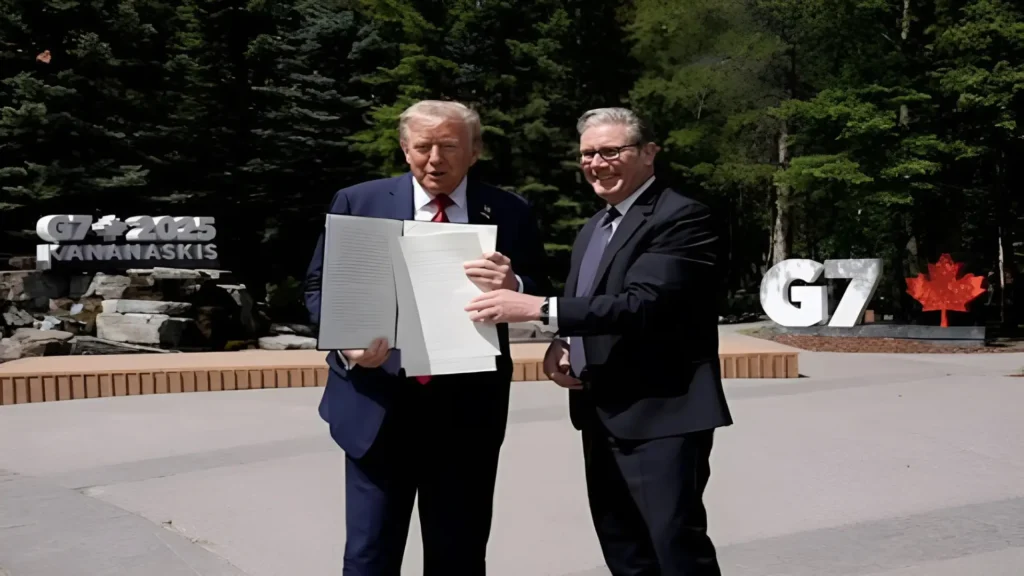As global leaders gathered at the G7 Summit in Canada (US UK Strike Trade Deal), a major breakthrough in transatlantic trade was announced – though with a few loose ends. The United States and the United Kingdom unveiled a partial trade agreement aimed at reducing tariffs and boosting market access for key sectors. However, tensions over steel and aluminum imports still hang in the balance.
What happened:
U.S. President Donald Trump and UK Prime Minister Keir Starmer jointly announced a new trade deal on the sidelines of the G7 Summit. Trump signed an executive order that lowers or eliminates tariffs on British automobile and aerospace exports. The agreement grants UK automakers an annual quota of 100,000 cars to be imported into the U.S. at a reduced 10% tariff. It also eliminates tariffs on aerospace parts and planes.
The UK, in return, agreed to lower tariffs on U.S. beef and ethanol and accept reciprocal beef access of 13,000 metric tons – provided food safety standards are met.
Despite progress, the issue of U.S. tariffs on UK steel and aluminum remains unresolved. A proposed quota system may allow the UK to bypass the 25% tariffs, but only if it meets stringent security benchmarks regarding its steel supply chain.
Why it happened:
This deal comes as both nations aim to bolster economic ties post-Brexit and amid a tense global trade environment. The U.S. is seeking to secure favorable trade terms while protecting its domestic industries, and the UK is pushing for market access to strengthen its economy (US–UK Strike Trade Deal). The aerospace and auto sectors were prioritized due to their economic significance.
Trump’s comments highlighted personal diplomacy: “The UK is very well protected… because I like them. That’s their ultimate protection.”
What’s expected:
While parts of the agreement will take effect within weeks, the full trade deal’s implementation could take several months. Critical sectors like pharmaceuticals still await resolution, and steel tariffs remain a flashpoint. The UK Trade Secretary emphasized continued negotiations to secure broader preferential outcomes and ensure protection from future tariff threats under ongoing U.S. investigations.
Until then, the deal represents a symbolic yet partial win – offering tariff relief to some industries, while leaving others in suspense.
Read More : US–UK Trade Deal Signed, Steel Dispute Lingers
